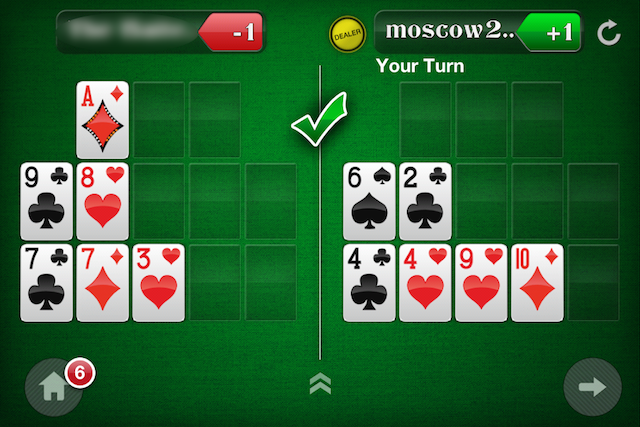Luck vs Skill in Poker. Poker is a game of skill with a luck element. The skill element outweighs the luck factor. This means that unlike games of chance, poker can be beaten over the long run. You can play poker for a living. You cannot play roulette for a living. This is because poker is a game of skill and roulette is an example of a.
The question of poker is a game of skill or chance has been one that has occupied the US legal system for a long time. While many argue that poker is a game that is based on chance alone, and therefore should be lumped together with other games of chance such as slot machines and roulette, others argue – justifiably – that poker games cannot be won without an element of skill. Over the years, the US has been witness to a number of court cases where the skill versus debate has been argued over and over again. In some cases, the skill argument has held out, while most times it has been impossible to convince judges that poker is game of skill, based on the science of mathematics.
A Case in Point: Pennsylvania vs Walter Watkins and Diane Dent
Watkins and Dent were charged with violating Pennsylvania gambling laws on 20 counts by hosting poker games in the garage. A court case in December 2009 heard both sides of the argument, and the main issue was whether the Texas Hold ‘em games that were being run were considered illegal or not. Judge Thomas A. James Junior determined in his ruling that poker is a game of skill and therefore it is not considered gambling. He based his ruling on a 1983 Supreme Court ruling that said “for a game to constitute gambling, it must be where chance predominates rather than skill.”
The judge quoted a number of sources to back up his ruling, including the fact that there are over 600 books on the subject of poker strategy – and all of them agree that poker is a game of skill. He also cited from the 2005 study In Poker: Public Policy, Law, Mathematics and the Future of American Tradition.
“The academic studies and the experts generally agree that a player must be skillful to be successful at poker,” James wrote. “At the outset, chance is equally distributed among the players. But the outcome is eventually determined by skill.”
Unfortunately, the state was not going to take this ruling as the final word and appealed the verdict. In April 2010, the appellate court ruled 2-1 that poker is dominated by luck, thereby overturning Judge Thomas’ ruling. The two judges, Kate Ford Elliot and Robert Freeberg ,said that while there is an element of skill inherent to poker, it is governed mostly by luck. Watkins and Dent therefore had their convictions re-instated under Pennsylvania gambling laws.
The PPA White Paper on Skill versus Chance
The Poker Players Alliance has written a comprehensive white paper that spells out why poker is considered a game of skill, devoting particular attention to the most popular form of poker, Texas Hold’em. The paper shows that just the same way it cannot be disputed that football, baseball and golf require skill and training, even though the result of each game “turns in part upon luck or chance”, so too does the game of poker. While an accumulation of luck over the course of a poker game may affect how players perform, this is also true with golf, for example, such as weather conditions, lucky bounces, and so forth. “The fact that every hand of poker involves multiple decision points (at each of the multiple rounds of betting), multiple decisions at each decision point (bet, call, raise, or fold), and innumerable factors that call for skill to evaluate each of those decisions (for example, the player’s own cards, the odds of his hand improving, his sense of the strength of the other player’s hand, his sense of the other players’ perception of him), establishes that poker is a contest of skill,” argues the PPA.
Is Poker Skill Or Luck
The White Paper goes on to argue that making correct decisions in poker games requires a diverse array of sophisticated skills that games of skill do not. “The importance of decision-making in poker cannot be understated: in a recent statistical analysis of millions of actual poker hands, the players’ decisions alone rather than the cards dealt accounted for the result in 76% of all the hands played,” it is shown.
It is also shown that several studies have clearly demonstrated that skills players beat simple players in simulated and real poker play.
The Poker Players Alliance is of the clear and undisputable opinion that poker is a game of skill, a belief that is shared among academics, legal scholars and opinion leaders. The group argues that poker involves maths, psychology, assessing competition and money management.
As the PPA states on its website: “A good litmus test in determining whether a game is predominantly a game of skill or a game of chance is the answer to the question: “Who are the top players of this game in the world?” For poker, someone could name the top five or 10 poker players in the world. But if the question asks for the top roulette players or bingo players, answers would not come as easily because a skilled player and a non-skilled player have the exact same likelihood of winning those games.”

Poker Stars Online Poker Room Studies Poker Skill versus Chance Debate
Online poker room, Poker Stars, commissioned a report from Cigital Inc and Rational Entertainment Enterprises in April, 2010, entitled Statistical Analysis of Texas Hold’em.” The study analyzed a staggering 103 million hands of poker played at PokerStars during December 2008 and determined that the vast majority of the time, ie. 75.7%, the hands did not go to showdown. This meant that luck was not a factor in the majority of the hands dealt. The serious study took into account all the factors that could influence the skill versus chance argument and found, without a doubt, that poker is a game of skill. “This study concludes that the outcomes of 103 million observed games of Texas Hold’Em Poker were determined by skill more often than by chance, and by a significant margin,” said Cigital about the report.

The Chairman of the PPA, Alfonse D’Amato said after reading the findings of the report: “As a poker player I can tell you that knowing when to hold or fold is not based solely on the cards that are dealt, but a series of decisions based on skill and the actions taken by the other players. This study provides the raw data to back up the compelling arguments made by poker players around the world that it’s skill, not pure luck, that determines the outcome of the game.”
The Skill versus Chance Debate and the UIGEA

The question of whether poker falls under the laws governing the Unlawful Internet Gambling Enforcement Act (UIGEA) that was passed in the United States in 2006, is an ongoing one. Poker players are adamant that as the UIGEA specifically legislates over games that are ‘subject to chance’, poker is simply not included. This line of argument has been adopted by online poker sites that continue to market their products to US players, despite the UIGEA. The argument becomes even murkier when one examines the exemptions afforded by the UIGEA to games such as horse racing, state lotteries, fantasy football and commodity training. All of these rely on a much higher degree of chance than poker does, yet they are not answerable to the law.
The Chess Connection
Is Poker Skill Or Luck Reddit
One of the most analytical games, based on skill, is chess. The world chess master, Garry Kasparov, once made the argument that poker involves such high elements of skill and risk management that even chess cannot compete with these levels. As such, a number of chess pros have made the move to professional poker in order to increase their revenue. Jennifer Shade, who won the American Women’s Chess Championship twice has made the move to poker, and has stated that both games rely on similar skills.
“The Theory of Poker”
In his book, “The Theory of Poker”, David Sklansky argues that poker players do not rely on luck. Instead, he says, they are “at war with luck”. A skilled player will know when to use the luck that comes along and when to step out of its way when it comes in the path of opponents. He also arguez that the best way to determine that poker is a game of skill is by checking out the losing element. In games of chance, argues Sklansky, such as roulette, the player cannot lose intentionally. However, this does not stand true for poker as the game allows players plenty of opportunity to lose intentionally if they wish. Losing a hand intentionally is also a form of skill in poker, and goes a long way in highlighting the skill element in the game.
Conclusion
It goes without saying that the United States has a long way to go before lawmakers and courts will understand the basic argument that poker should not be thrown in together with other forms of gambling. It has been proven time after time that skill is the predominant factor in this game, and that chance is only secondary.